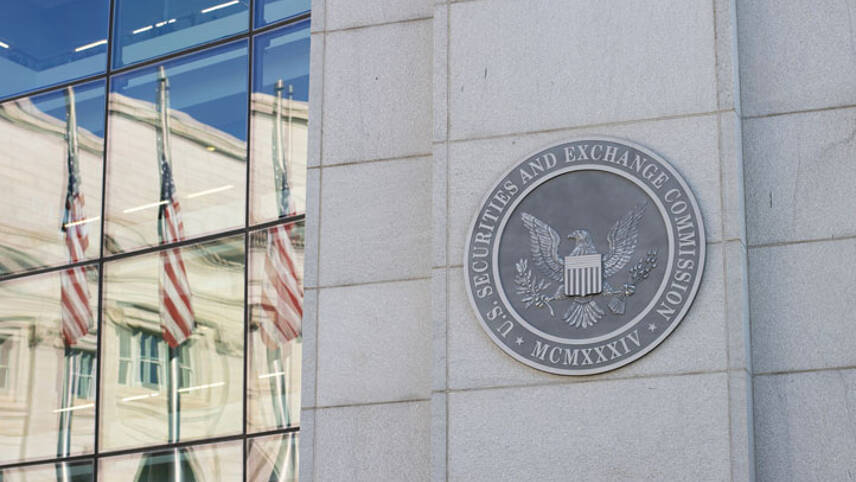Register for free and continue reading
Join our growing army of changemakers and get unlimited access to our premium content

On 6 March, after years of public debate, the US Securities and Exchange Commission (SEC) finally made its ruling on corporate climate disclosures.
While the most controversial aspect regarding Scope 3 emissions was omitted from the final rules, the fact that Scope 1 and Scope 2 emissions are included in the disclosure requirements represents a collective understanding of the global climate challenge and the need for a common framework to standardise corporate climate disclosure across industries.
While the Commission issued a stay on April 4 amidst legal challenges, it does not negate the underlying importance of climate risk disclosure. The rules as presented in the March announcement reflect the fact that climate change is no longer an abstract threat; its realities are confronting consumers and companies alike. Businesses that do not adapt will face climate-related consequences in the future as well as questions from investors and consumers related to the company’s climate impact.
As Chief Sustainability Offer at Ecolab, I can attest first-hand to the response in the corporate sustainability arena to the SEC’s ruling, a decision which sparked a standing ovation—and whispers of doubt. Did the rule reach far enough, or did Scope 3 emissions slip through the net? Now, as legal battles ensue, the ticking clock amplifies the worry. Will these delays cloud the clear skies of environmental transparency that companies and investors so desperately seek?
Beyond compliance
While the final rules only apply to public companies, all companies stand to gain from implementing such reporting practices and having a uniform framework to do so. Despite the delay and in light of more investors seeking a holistic understanding of the climate-related risk of their investment portfolios, companies should use this time to prepare and ensure they are in compliance once the rules are finalised.
Even so, environmental transparency is not just a matter of compliance; it’s a fundamental aspect of sustainable business practices. Transparency breeds trust, and organisations demonstrating robust climate resilience are better positioned for a climate-impacted future—thus being perceived as lower risk and more attractive to investors.
Incorporating environmental considerations into routine SEC filings will not only enhance corporate governance of climate-related issues, but it will also enable more informed decision-making at all levels. It will allow corporate sustainability practitioners to have an ever-increasing quality snapshot of where their organisation is and what actions are needed to further advance on their sustainability pathways.
Investors will also be able to better assess the long-term sustainability of companies and allocate capital accordingly. Additionally, it will empower consumers to make more environmentally-conscious investing and purchasing decisions—a trend that customers are already driving as demand for sustainable products and services increases.
In an era where climate progress is scrutinised, the private sector must recognize the growing skepticism among consumers, employees and investors about the actual pace of environmental transformation. The discrepancy between pledges and performance is no longer tolerable. Companies that do not deliver on their climate commitments risk losing not only investor confidence but also consumer trust. The SEC’s climate disclosure ruling should not be viewed as a regulatory hurdle, but rather a pivotal chance for businesses to demonstrate true transparency and build enduring trust with stakeholders, thereby cementing their place in a future-oriented market.
What happens next?
While the opportunity is ripe, we remain at a crossroads. The SEC’s decision to stay this ruling only delays the implementation of much-needed standardisation for climate disclosures across industries and stifles critical momentum. Delaying action further exacerbates the risks and could increase the costs of adaptation and resilience efforts. Companies will need time to instill the new requirements into their protocols, and the continued uncertainty makes it difficult to know where to go next—making the underlying aim of mitigating climate risk harder all the while.
With the latest U.S. appeals court ruling that 19 Attorneys Generals can defend the SEC’s final rules in court, I remain hopeful the legal system will uphold the SEC’s final ruling and legitimise the SEC as a proper implementing body for helping facilitate improved climate risk disclosure for investors. Companies, investors and our planet cannot afford to wait any longer. This reporting, if implemented thoughtfully, can be a catalyst for positive change, promoting transparency, risk management, and ultimately, a competitive advantage for businesses committed to sustainability.
When reporting climate disclosures, I see first-hand the value this transparency brings. Since 2008, Ecolab has publicly reported our climate impact in a manner that is largely consistent with the SEC’s proposed requirements. Guided by the data, we’ve been able to lower our climate footprint over time while continuing to grow as a business. Our own case history demonstrates that companies can deliver strong financial performance by delivering on sustainability ambitions.
The time for collective action is now. Despite the SEC’s delay in enforcing climate disclosure rules, the call for immediate collective action remains critical. Companies are urged to independently evaluate the implications of these impending requirements on their business practices.
Embracing uniform regulatory standards and prioritising climate transparency is a strategic move. It grants investors and the market a clear insight into an organisation’s operations and demonstrates a commitment to long-term, sustainable growth. This proactive stance is essential for businesses aiming to thrive in an increasingly sustainability-conscious world.
Emilio Tenuta is chief sustainability officer at Ecolab



Please login or Register to leave a comment.